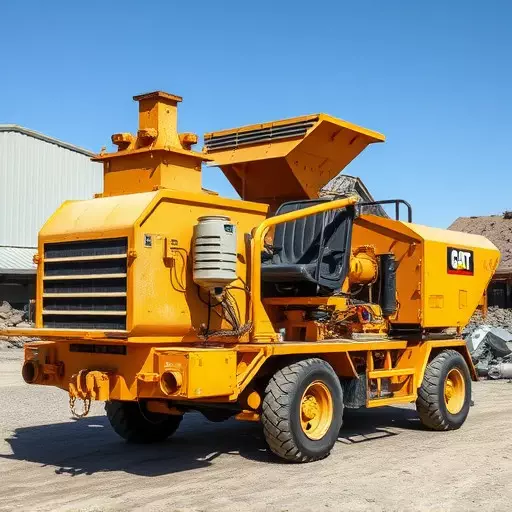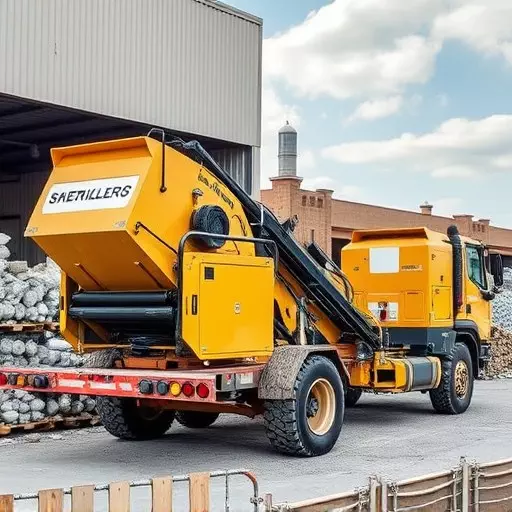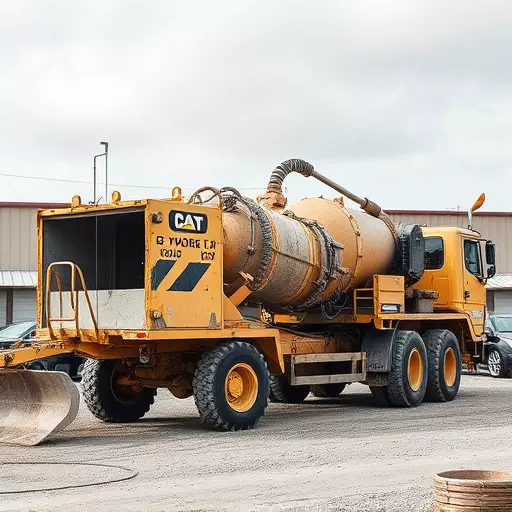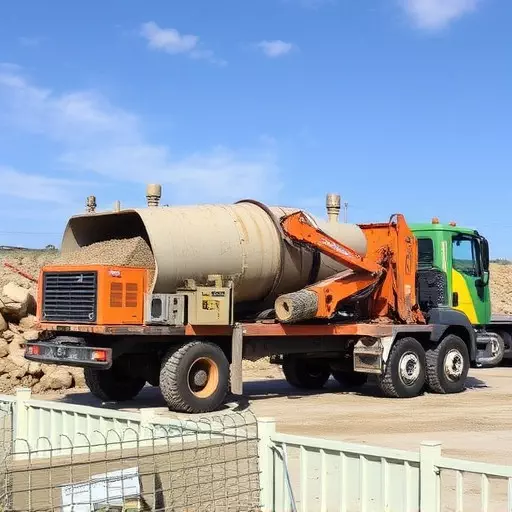Concrete crushing experts in Toledo are leading the way in sustainable construction practices by promoting concrete recycling and utilizing portable concrete crushers. These innovations significantly reduce environmental impact compared to traditional methods, cutting costs, and minimizing emissions while transforming former structures into reusable materials for diverse applications. By adopting these eco-friendly technologies, professionals in Toledo are conserving natural resources, protecting ecosystems, and aligning with global sustainability goals.
Concrete crushing and recycling, a process often undertaken by concrete crushing experts like those in Toledo, holds significant environmental implications. This article delves into the intricate world of concrete recycling, exploring its benefits as a sustainable construction practice. From understanding the basics of concrete crushing operations to examining the ecological impact and the role of portable concrete crushers, we provide insights for minimizing the industry’s footprint on ecosystems and landfills.
- Understanding Concrete Crushing and Recycling: A Brief Overview
- The Environmental Footprint of Concrete Crushing Operations
- Benefits of Portable Concrete Crushers in Sustainable Construction
- Best Practices for Minimizing the Impact on Ecosystems and Landfills
Understanding Concrete Crushing and Recycling: A Brief Overview

Concrete crushing and recycling is a process that has gained significant attention from both construction professionals and environmental advocates. This practice involves the transformation of concrete structures, such as buildings or bridges, into reusable materials, reducing the need for new raw resources in the construction industry. Concrete recycling experts, often utilizing portable concrete crushers, play a crucial role in this process. These experts disassemble and crush concrete materials, which can then be used in various applications like road base, aggregate for new concrete mixtures, or even as a component in manufactured products.
The methodical approach of these concrete crushing specialists ensures that the recycled material meets specific quality standards. Portable crushers, being versatile and efficient, enable on-site processing, minimizing transportation costs and environmental impact. This sustainable practice not only conserves natural resources but also reduces the significant carbon footprint associated with traditional construction methods and disposal of concrete waste.
The Environmental Footprint of Concrete Crushing Operations

Concrete crushing operations have a significant environmental footprint, particularly in terms of waste management and resource consumption. When concrete structures like buildings or bridges are demolished, the resulting material is crushed into smaller pieces, creating what is known as recycled aggregate. While this practice offers an alternative to extracting new raw materials, it still poses several ecological challenges.
One of the key issues with concrete crushing is the release of emissions during the process. Portable concrete crushers, for instance, often rely on diesel power, contributing to air pollution and adding to the carbon footprint. Additionally, the energy-intensive nature of crushing and recycling concrete can have a substantial environmental impact, especially when compared to using freshly extracted aggregate. However, experts in Toledo and elsewhere are exploring innovative solutions to mitigate these effects, focusing on more eco-friendly technologies and practices within the concrete recycling sector.
Benefits of Portable Concrete Crushers in Sustainable Construction

The adoption of portable concrete crushers by construction professionals in Toledo and beyond offers a sustainable solution for managing concrete waste. These versatile machines allow for efficient on-site crushing, transforming bulky concrete into reusable aggregate. This not only reduces the environmental impact of transporting recycled materials to processing facilities but also minimizes the carbon footprint associated with producing new concrete from scratch.
Concrete recycling, facilitated by portable crushers, aligns perfectly with the principles of sustainable construction. It helps conserve natural resources, diminishes landfill space consumption, and lowers energy consumption compared to manufacturing virgin concrete. With their ability to crush various types of concrete, these devices cater to diverse construction projects, making them indispensable tools for concrete crushing experts in Toledo.
Best Practices for Minimizing the Impact on Ecosystems and Landfills

Concrete crushing experts in Toledo understand the environmental implications of their work and strive to implement best practices for minimizing ecological impact. One key strategy is promoting concrete recycling, which reduces the demand for new aggregate production. By utilizing portable concrete crushers, materials can be processed on-site, cutting down on transportation emissions and disturbing nearby ecosystems. This method allows for a more sustainable cycle, where old concrete structures are given new life as valuable resources.
Additionally, proper site selection is crucial to protect natural habitats. Concrete crushing operations should aim to establish in areas that are not ecologically sensitive, such as heavily forested or wetland regions. Implementing strict containment measures, like lined impoundments and dust suppression systems, can also mitigate pollution from leachate and airborne particles, ensuring minimal impact on surrounding land and water bodies.


